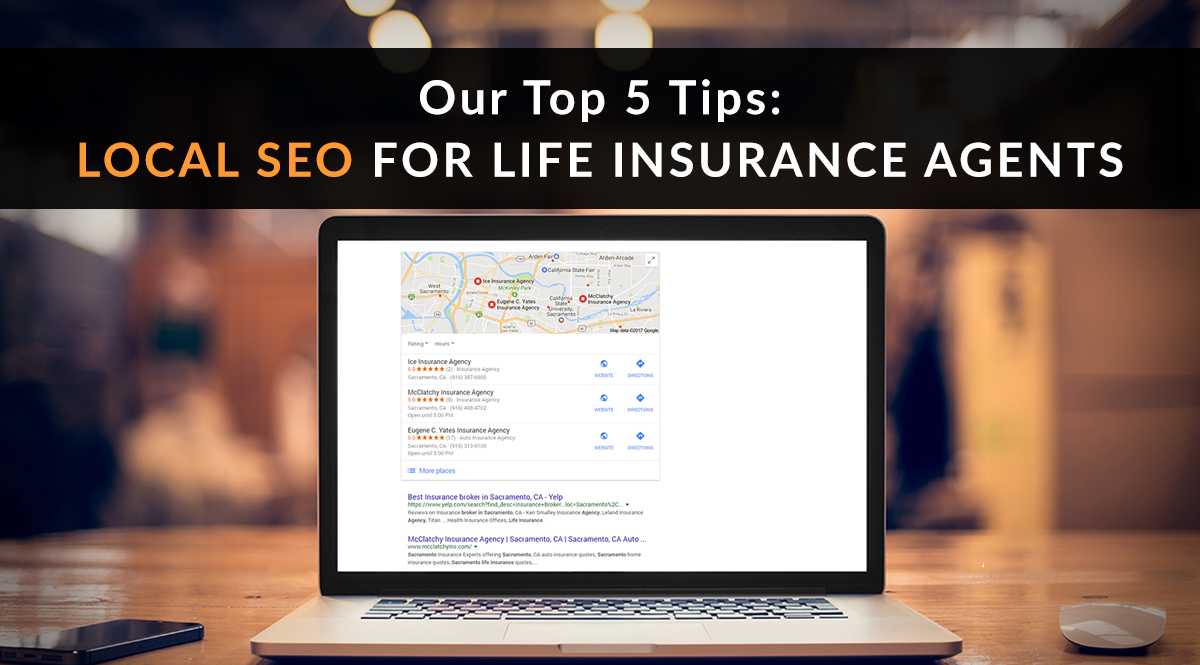**What to Do After a Single-Car Accident**
In the wake of a one-car accident, it’s crucial to act quickly and decisively to protect yourself and others. The adrenaline rush can make it difficult to think clearly, but it’s essential to remain calm and assess the situation.
**Stay Calm and Assess**
In the immediate aftermath of a single-car accident, it’s natural to feel overwhelmed. However, it’s crucial to take a few deep breaths and regain your composure. Once you’ve collected yourself, check for any injuries, both to yourself and any passengers. Even if you don’t feel any pain right away, it’s important to seek medical attention as soon as possible, as some injuries may not manifest themselves until hours or even days later.
Next, assess the safety of the scene. If your vehicle is blocking traffic, move it to the side of the road if possible. Turn on your hazard lights to alert other drivers. If there are any downed power lines or other hazards, be sure to stay clear and call 911 immediately.
Once you’ve ensured your safety and the safety of others, it’s important to gather as much information as possible about the accident. Take pictures of the damage to your vehicle and the surrounding area. Obtain the names and contact information of any witnesses. If you’re able, write down a detailed account of the accident while it’s still fresh in your mind.
Finally, it’s crucial to contact your insurance company as soon as possible. They will be able to help you file a claim and begin the process of repairing or replacing your vehicle. It’s also a good idea to contact a lawyer if you have any questions about your legal rights or are seeking compensation for your injuries.
**Additional Steps to Take**
- Call the police: Even if the accident is minor, it’s a good idea to call the police. They will be able to create a police report that can be helpful when filing an insurance claim.
- Don’t admit fault: Even if you believe you caused the accident, it’s important to avoid admitting fault to the other driver or the police. This could hurt your case later on.
- Get a medical checkup: Even if you don’t feel injured, it’s a good idea to get a medical checkup after a car accident. Some injuries may not be immediately apparent.
One car accident? What should you do?
After a one-car accident, it’s natural to feel shaken up. But it’s important to stay calm and take the necessary steps to protect yourself and your loved ones. Here are the steps you should follow after a one-car accident:
Contact Authorities
After a one-car accident, the first thing you should do is contact the authorities. This means calling the police and reporting the accident. When you call the police, be sure to provide them with accurate details about the accident, including the location, time, and date of the accident. You should also provide them with your contact information and the contact information of any other drivers or passengers involved in the accident.
In addition to calling the police, you should also contact your insurance company. Your insurance company will be able to help you file a claim and get your car repaired or replaced.
It’s important to contact the authorities even if you don’t think you’re injured. Some injuries, such as whiplash, may not be immediately apparent. By contacting the authorities, you can ensure that you get the medical attention you need. Furthermore, contacting the police can help to establish a record of the accident, which may be helpful if you need to file a claim with your insurance company or if you’re involved in a lawsuit.
If you’re not sure whether or not you should contact the authorities, it’s always better to err on the side of caution and call the police. This is especially true if there is any damage to property or if anyone is injured.
Once you’ve contacted the authorities, you should move your car to a safe location. If your car is blocking traffic, you should pull it over to the side of the road. If your car is not drivable, you should call a tow truck.
One Car Accident: What to Do
After experiencing a one-car accident, it can be disorienting and overwhelming, but it’s crucial to stay calm and take immediate action to ensure your safety and well-being. Here’s a comprehensive guide on what to do in such situations:
Document the Incident
Documenting the incident thoroughly is essential for insurance claims and potential legal proceedings. Here’s how:
-
Take photos: Capture the accident scene from various angles, including damage to your vehicle, the road conditions, and any nearby objects. These images will serve as valuable evidence.
-
Exchange information: Obtain the names, contact details, insurance information, and license plate numbers of any other drivers involved. If there are witnesses, ask for their names and contact information as well.
-
Gather witness statements: If possible, speak to any witnesses who observed the accident. Get their accounts of what they saw and heard. This information can help clarify the circumstances of the accident.
-
File a police report: Contact the police and file a report, even if it’s a minor accident. The police report will provide an official record of the incident and may be necessary for insurance purposes.
-
Seek medical attention: If you or any passengers sustained injuries, seek medical attention promptly. Even if injuries don’t seem severe, it’s important to have them checked out by a healthcare professional.
One Car Accident: What to Do
If you’re involved in a single-vehicle accident, the initial shock and confusion can be overwhelming. However, it’s crucial to remember that taking the right steps and staying calm can significantly impact your safety and well-being in the aftermath.
**1. Ensure Safety**
First and foremost, ensure your safety by turning on your hazard lights, moving your vehicle to a safe location if possible, and placing flares or warning signs around the accident scene. This will prevent further accidents and alert other drivers.
**2. Seek Medical Attention**
Even if you don’t feel immediate pain, it’s imperative to seek medical attention. Adrenaline can mask the symptoms of serious injuries, and internal bleeding or concussions may not appear right away. A doctor will thoroughly examine you, diagnose any injuries, and provide appropriate treatment.
**3. Call the Police**
In most cases, it’s advisable to call the police and report the accident. Their presence will help control traffic, document the scene, and facilitate the exchange of information with other parties involved.
**4. Collect Evidence**
If you’re able, gather as much evidence as possible. This can include taking photos of the accident scene, exchanging information with any witnesses, and obtaining a copy of the police report. Thorough documentation will strengthen your case if you need to file an insurance claim or pursue legal action.
Remember, time is of the essence when it comes to medical attention. Don’t hesitate to seek help, even if you feel okay. Your health and well-being should be your top priority.
**One-Car Accident: What To Do**
One-car accidents can be frightening and confusing. If you’re involved in one, it’s important to stay calm and take the following steps to ensure your safety and protect your rights.
**Stay Calm and Assess the Situation**
Pull over to the side of the road if possible. Check yourself for injuries and call 911 immediately if you or anyone else is hurt. Once you’ve ensured everyone’s safety, take a moment to assess the damage to your vehicle and the surrounding area.
**Call the Police**
Even if there are no injuries, it’s always a good idea to call the police. They can file an accident report, which will be helpful when filing an insurance claim. Be sure to provide the officer with as much information as possible, including the time and location of the accident, the names and contact information of any witnesses, and a description of how the accident occurred.
**Exchange Information**
If there are any other vehicles involved in the accident, exchange insurance and contact information with the other drivers. Make sure to get their names, addresses, phone numbers, and insurance policy numbers.
**Take Photos**
Use your smartphone or camera to take photos of the damage to your vehicle, the other vehicles involved, and the surrounding area. These photos will be helpful when filing an insurance claim and proving your case if necessary.
**Contact Insurance Company**
Notify your insurance company as soon as possible and provide them with all necessary details, including the date, time, and location of the accident, the names and contact information of any other drivers involved, and a description of how the accident occurred. Your insurance company will assign you a claims adjuster who will help you through the process of filing a claim and getting your vehicle repaired or replaced.
**Seek Medical Attention**
Even if you don’t feel injured immediately after the accident, it’s important to see a doctor as soon as possible. Some injuries, such as whiplash, may not show up right away. Getting checked out by a doctor will ensure that you get the treatment you need and help you avoid any long-term problems.
**Hire an Attorney (Optional)**
If you or someone you know is seriously injured in a one-car accident, you may want to consider hiring an attorney. An attorney can help you protect your rights, negotiate with the insurance company, and get you the compensation you deserve.
**One Car Accident: What to Do**
In the aftermath of a one-car accident, knowing what to do can be overwhelming. It’s important to stay calm and prioritize your safety. Here are some crucial steps to take if you find yourself in this situation:
**Stay Calm and Assess the Situation**
Take a deep breath and check yourself for injuries. If you’re able to, exit the vehicle and move to a safe spot. Assess the scene and check for any hazards, such as downed wires or leaking fuel. Turn on your hazard lights to alert other drivers.
**Call for Help**
Dial 911 immediately to report the accident. Provide the dispatcher with your location and a brief description of the incident. Stay on the line until help arrives and follow their instructions.
**Document the Scene**
Take photos of the accident scene, including your vehicle, any visible damage, and the surrounding area. This documentation will serve as evidence for insurance claims and potential legal proceedings.
**Exchange Information**
If there are no other vehicles involved, you don’t need to exchange information. However, if there are witnesses, get their names and contact information.
**Contact Your Insurance Company**
Inform your insurance company about the accident as soon as possible. They will guide you through the claims process and provide you with assistance.
**Seek Medical Attention**
Even if you don’t feel injured immediately, it’s crucial to seek medical attention. Some injuries may not be apparent right away, and getting checked out is essential for your health and well-being.
**Hire Legal Representation**
Consider hiring an attorney if there are significant injuries, fault disputes, or complex insurance claims. A lawyer can protect your rights, guide you through the legal process, and maximize your compensation.
**Preserve Evidence**
Keep all documentation and records related to the accident, including medical bills, receipts, and correspondence with insurance companies. This evidence will be valuable if you need to pursue legal action or file a claim for damages.
**Follow Up**
Follow up with your insurance company and attorney regularly to stay informed about the status of your case. Stay patient, and don’t hesitate to ask questions or seek clarification when needed.
One-Car Accident: What to Do?
After a one-car accident, you’re likely feeling shaken and disoriented. It’s important to stay calm and take the following steps to protect yourself and your rights.
**Call the Police**
Even if the accident seems minor, it’s essential to call the police. They will create an official report that will be helpful if you need to file an insurance claim or take legal action. The police can also direct traffic and ensure your safety.
**Check for Injuries**
After the police arrive, check yourself and any passengers for injuries. Even if you don’t feel any pain immediately, some injuries, such as whiplash, may not show up for hours or days. It’s important to get medical attention if you feel any discomfort or have any concerns.
**Gather Information**
Once you’re sure everyone is safe, gather as much information as you can about the accident. This includes the other driver’s name, insurance company, and license plate number. Also, take photos of the damage to your car and the scene of the accident.
**Report the Accident to Your Insurance Company**
As soon as possible after the accident, report the accident to your insurance company. They will need to file a claim and begin the process of repairing or replacing your car.
**Get a Copy of the Police Report**
Once the police report is complete, request a copy for your records. This will be helpful if you need to make an insurance claim or take legal action.
**Protect Your Rights**
Be cautious of signing or agreeing to anything without fully understanding your rights and the consequences. Do not admit fault to the other driver or the police. Also, do not sign any releases or agreements without consulting with an attorney.
**Get Legal Advice**
If you have been injured in a one-car accident, it is advisable to seek legal advice. An attorney can help you protect your rights and get you the compensation you deserve.
One Car Accident: What to Do
In the aftermath of a one-car accident, it’s crucial to remain calm and take the necessary steps to ensure your safety and well-being. These accidents can be disorienting and stressful, but by following these guidelines, you can navigate this situation effectively.
Safety First
After the accident, your primary concern should be safety. Check for any injuries, both yours and any passengers. If you or someone else is injured, call 911 immediately. Move your vehicle to a safe location if possible, turn on your hazard lights, and exit the car cautiously.
Contact the Police
Reporting the accident to the police is essential. They will create an official report that serves as documentation and can help with insurance claims. Provide them with all relevant information, including the date, time, location, and circumstances of the accident. Obtain a copy of the police report for your records.
Gather Evidence
Preserving evidence can strengthen your case if necessary. Take pictures of the accident scene, including damage to your vehicle, road conditions, and any visible injuries. Obtain contact information from any witnesses who may have seen the incident.
Exchange Information
If there are other vehicles involved, exchange insurance information and contact details with the other drivers. Take note of their license plate numbers and insurance policy details. This information will facilitate the insurance claims process.
Seek Medical Attention
Even if you don’t feel injured immediately, it’s important to seek medical attention. Some injuries may not manifest symptoms right away. A doctor can examine you, diagnose any injuries, and provide treatment recommendations.
Contact Your Insurance Company
Filing an insurance claim is crucial to cover the costs associated with the accident. Notify your insurance company as soon as possible and provide them with all the information you’ve gathered. They will guide you through the claims process.
Emotional Support
In addition to the practical steps, it’s equally important to address the emotional impact of the accident. Seek support from family, friends, or a therapist to cope with the anxiety, stress, and trauma. Talking about your feelings can help you process them and move forward.
Legal Assistance
If the accident involves serious injuries or complex legal issues, consider consulting with an attorney. They can guide you through the legal process, protect your rights, and ensure you receive fair compensation for your damages.




Leave a Reply